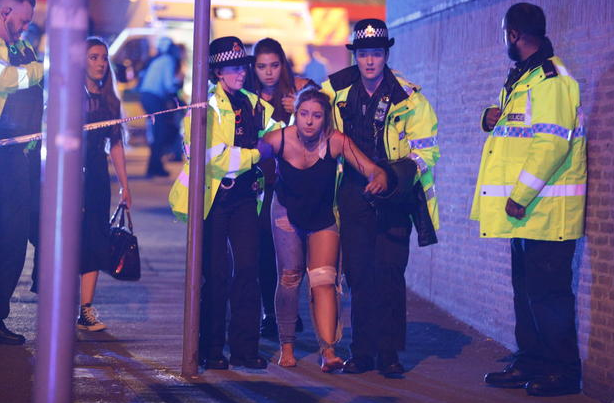
Courtesy: Joel Goodman/LNP
By: Anna O’Brien & Hiba Traboulsi
In the wake of the deadly bombing at the Manchester Arena, many parents are unsure how to address the topic with their children.
ISIS has taken responsibility for the suicide bombing that killed 22 people and injured at least 59–including an eight-year-old girl–at the Ariana Grande concert on Monday night.
“Terrorism is nonsensical, and as adults we can put it into context, but it’s difficult for a child to understand such human violence,” said Nikki Martyn, program head of Childhood Studies at the University of Guelph-Humber.
Martyn said that children experience similar behavioural issues after traumas as adults would, but without the same understanding.
“It affects children and families on a global scale. Parents want to protect their children and will likely begin to take more extreme security measures.”
For many parents, the thought that an attacker would deliberately target a venue full of children would be enough to cancel most plans. But can they really rid their children of the freedom to attend their favourite events? How can parents raise children in these terrifying times while not being defeated by the threat of terrorism?
Many people took to social media to express their concerns and sorrow.
this innocent beautiful child is now confirmed dead, my heart goes out to her and all the others killed’s families? #Manchester pic.twitter.com/nI4NQ9PDdm
— isabel | exams (@validatedan) May 23, 2017
@hey_whatsoever My 4 year old was asking me why I was crying on the phone to my Dad… I had to lie and say I missed him. What do you say?
— Charleigh Rae (@realwifelife) May 23, 2017
Emma Citron, consultant clinical psychologist, spoke with BBC about how to talk to children about terrorist attacks, and advises open communication.
“Give children basic facts and ask them what they would like to know,” said Citron. “But you don’t want to be describing the scene, describing the bloodshed, describing what it looked like or showing them images. That can traumatize the child.”
Citron says it’s also helpful to include reassuring phrases such as “This is a very rare occurrence” or “It’s absolutely awful, but thank goodness it’s extremely rare.”
Malie Coyne, a clinical psychologist in Galway City, Ireland told Humber News on Tuesday that it is the role of parents to ensure that children are getting appropriate help.
“What happened during last night’s tragic event in Manchester has impacted our sense of the world being a safe place, most significantly for those who attended the event and directly witnessed the violence and loss of life” said Coyne.
“Children who are directly exposed to such events can become very traumatised, the emotional impact of which can last a very long time if adequate professional supports are not put in place in time.”
Despite the tragic events, Martyn reminds people of the healing power of community.
“There’s a lesson for children in how much traumatic events can bring communities together,” she said.
“The support of families and communities showcase the idea of resilience. How we carry on in the aftermath of tragedy is what will support and shape our future generations.”
Several hotels in Manchester took in children following the explosion. Taxis were also offering free rides to anyone who is stuck in the Manchester arena.
On Twitter, the hashtag #RoomForManchester is serving as a place for Manchester residents to offer their home and food. With numerous children missing after the concert, families are using the internet to bring attention to finding their child.
Anybody stuck in Manchester tonight I have a spare room and I just made some really nice soup. #roomformanchester please rt xxx
— Robyn Alexander (@robynrobynrobyn) May 23, 2017
KEEP RETWEETING PLEASE HELP
–
FOR ANYONE SEARCHING FOR A CHILD OR LOVED ONE IN #MANCHESTER
–
THEY MIGHT BE AT THE HOLIDAY INN #Manchester pic.twitter.com/ZN6dY7N54H— ♡ (@prettyboydallon) May 23, 2017

